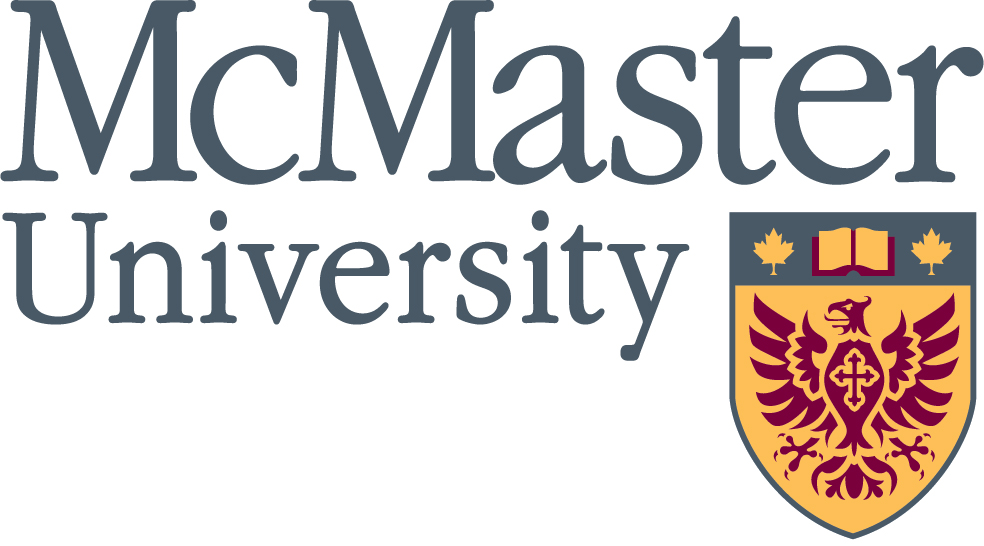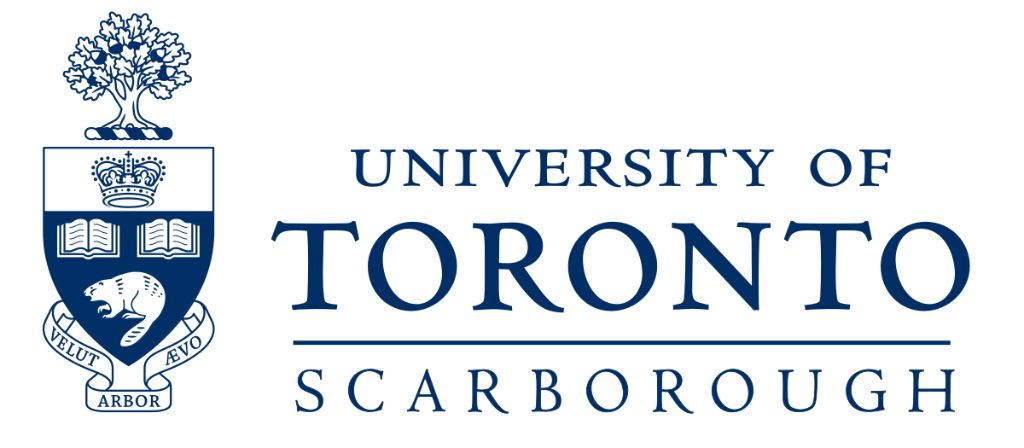Award 261279-CA
Research Chairs in Environmental, Food, and Health Studies
- COMPETITION OPENS FEBRUARY 2025
- Awards to be taken up in the 2026-2027 Academic Year
- Applications accepted until September 15, 2025
- The next competition, for awards to be taken up in the 2027-2028 Academic Year, will open in February 2026
- US$25,000 for 4 months
- Grants begin in either September 2026 or January 2027
- Fulbright Canada Program Officer, Recruitment
- Formal letters of invitation should not be sought; however, applicants are encouraged to contact the institution to discuss research interests.
Fulbright Canada Research Chair in Water, McGill University
The Fulbright Canada Visiting Research Chair in Water is focused on addressing the water issues important to Canada and the United States. The Chair will be located in the Brace Water Centre, providing a gateway to water-related research, training and outreach activities at McGill. Canada and the United States possess a unique water relationship, sharing many waterways and water governance. These include equitable and integrated water resource management to meet human, agricultural, industrial, and ecological demands; Indigenous rights and Traditional Knowledge; the regulation of contaminants including microplastics, pharmaceuticals, and nanomaterials; adapting to changing hydrological cycles and ensuring resilience in water systems. The Brace Water Centre was established in 1959 and seeks to advance sustainable water resource management through resilience-enhancing research and innovation. While at McGill, the Chair is expected to conduct high quality research, develop collaborations and contribute to the Brace Water Centre through participation in meetings, seminars and events. The Chair will also deliver the annual Fulbright Water Lecture focused on their water research.
Specializations: Water Security; Water Sovereignty; Circular Water Economy; Flood Hazard and Risk Assessment; Water Governance and Management; Water Diplomacy; Arctic Water Issues; Water Innovation Systems; Indigenous Peoples; Environmental Shift Adaptation and Resilience.
Fulbright Canada Research Chair in Energy Systems, McGill University
McGill Centre for Innovation in Storage and Conservation of Energy
Trottier Institute for Sustainability in Engineering Design
The McGill Centre for Innovation in Storage and Conservation of Energy (McISCE) is McGill University’s centre for interdisciplinary research, innovation, partnership, knowledge mobilization and outreach on the energy transition. The Trottier Institute for Sustainability in Engineering Design (TISED) is the hub for sustainable engineering at McGill University. Together, we bring a 360o perspective and catalyze the transformation of energy systems. We aim to be leaders in the development of knowledge, technologies and solutions, a fertile ground for the training of the next generations of energy thinkers and doers, lucid contributor to public dialogue, and a reference point on energy literacy. We aim to mobilize and elevate the various energy-focused initiatives at McGill University. The Chair will reinforce a systemic approach to energy research at McGill University. The aim of this position is to act as a binding force between the individual research expertise at the University and real-world problem solving for the energy transition. This Chair will strengthen North America’s capacity to foster collaboration within its existing energy research ecosystem. The Chair will participate in dissemination efforts with the public and McGill’s partners, which include several community-based organizations and municipalities, all with the goal of increasing the literacy of communities across the nation but also their resilience to economic changes that the transition is bringing. The Chair will benefit from a thriving community of researchers and staff to accelerate its impact.
Specializations: Techno-economic analysis, Lifecycle analysis, Energy transition, Socio-economic assessment, Energy systems analysis, Energy access, Energy storage and conversion.
Fulbright Canada Research Chair in Mental Health and Societal Wellbeing, McMaster University
The Faculty of Social Sciences will host a visiting scholar who will be able to work within a range of mental health areas from both an academic and community standpoint. They are seeking someone with research interests in the social experiences, social determinants and societal consequences of mental health and illness from a social science perspective. Successful candidates will engage with faculty members in a range of disciplinary and interdisciplinary programs. As one of Canada’s leading universities, known for its innovation and research intensiveness, McMaster University offers visiting scholars exciting and unique opportunities for research, education and collaboration.
Specializations: Areas of central concern include critical perspectives on mental health and illness, navigating life transitions and mental health, mental health and resilience, and the implications of new technologies and mental wellbeing.
Fulbright Canada Research Chair in Food Security, University of Guelph
Global food security occurs when all people have access to sufficient, affordable, safe and healthy food to meet their needs, and this food is produced in a sustainable way. A growing world population, along with the rise in extreme weather events, represent twin and intersecting threats to this goal; moving towards global food security means we must produce more nutritious food while reducing the environmental impact of our food production systems. This will require collaboration between academia, government, industry and civil society; entrepreneurship across the agri-food system; innovation in research and teaching; and applied partnerships to create impact.
This Chair’s objective is advance this goal - to generate effective and innovative contributions in research and teaching, to mobilize knowledge, and to work collaboratively with policy-makers, industry and civil society to reduce hunger and achieve food security in the developed and developing world. Thematically, research activities will deal with issues of sustainable food availability, food access, food use and global food system efficiencies.
The University of Guelph is renowned in Canada and around the world as a research-intensive and learner-centered institution, committed to open learning, internationalism and collaboration. There is food related expertise embedded within all 7 colleges of the University but particularly in the Ontario Agricultural College which has a long history of teaching, research and service in food and agriculture topics. In addition, The Arrell Food Institute at the University of Guelph acts as a hub for initiatives related to food in all aspects and it is led by key research chairs including its director, Evan Fraser. The Arrell Food Institute has a mandate to drive understanding of innovation towards and action on the world’s food issues.
Specializations: Food Sustainability global food safety systems, food sovereignty, hunger alleviation, health and food research, food authenticity and provenance, food environment, agricultural systems, hospitality management, consumer trends and preferences, supply chains, food cultures and policies.
Fulbright Canada Research Chair in One Health, University of Guelph
The most serious issues facing humans, animals and the environment cannot be solved within current disciplinary silos. At the University of Guelph (UG), transdisciplinary One Health research and training brings disciplines together and leverages knowledge generation to benefit society.
This Research Chair will employ and extend the One Health framework in innovative ways, using approaches drawn from the spectrum of interdisciplinary areas under the One Health umbrella. These areas include research into diseases arising at the interface of human and animal populations and their shared environments, food safety and security, antimicrobial use and resistance, and sustainable agriculture, among others.
This Research Chair will contribute to the training of researchers and veterinarians, providing them with an understanding of the power of the One Health framework for addressing global health challenges. The Chair will have an opportunity to engage with a variety of One Health stakeholders including agri-food industries, federal and provincial human and animal health agencies, as well as drawing upon productive partnerships with research teams and centres at UG: the One Health Institute, Centre for Public Health and Zoonoses, the Cooperative Wildlife Health Cooperative and the Bench to Bedside Institute for Translational Health Research and Innovation.
Specializations: Zoonosis, disease surveillance, predictive health analytics, food and water safety, antimicrobial resistance, human and animal well-being, comparative medicine, translational medicine, eco-health, wildlife conservation, ecosystem resilience.
Fulbright Canada Research Chair in Environment and Economy, University of Ottawa
Building an environmentally sustainable economy is one of the foremost challenges of our time. The chairholder will be researching some aspect of this issue, from an economic, policy, legal and/or business perspective, and with policy relevance. Located in the heart of Canada’s capital, the University of Ottawa is an ideal place for such research. The chairholder will be part of the inter-disciplinary team at the Institute of the Environment, which is home to Smart Prosperity Institute, Canada’s main environment-economy think tank and research network. They will also have an opportunity to teach in the Institute’s inter-disciplinary graduate program.
Specializations: Environment and economy, environment policy, economic policy, environmentally sustainable economy.
Fulbright Canada Research Chair in Sustainability Transitions, University of Toronto Scarborough
Institute for Environment, Conservation and Sustainability (IECS)
Current environmental challenges, the health of our planet, the well-being of individuals and societies, and the access and sustainability of local and global economies are deeply intertwined. The solution to these challenges is rarely linear and requires us to bring different kinds of knowledges and communities into dialogue. The Fulbright Canada Research Chairholder will be engaged in research that seeks to address these challenges by synthesizing scholarly thought from different disciplines to create collaborative solutions to the vexing problems of our time, in Canada and around the world.
iRISE is a network of research institutes at the University of Toronto Scarborough (UTSC) comprised of three founding institutes: the Institute for Environment, Conservation and Sustainability; the Institute for Inclusive Health and Well-Being; and the Institute for Inclusive Economies and Sustainable Livelihoods. Through its establishment of iRISE, UTSC affirms its commitment to convergence research that empowers communities and individuals, and informs future global goals for a just, prosperous, stable, and sustainable future.
Specializations: Research should relate to sustainability, broadly understood, and match research priorities of the institutes and Initiatives within iRISE, including environmental shifts, poverty reduction, and health inequities.
Fulbright Canada Chair in Sustainable Resources and Environmental Human Health, University of Windsor
Faculty of Science
School of the Environment
The Faculty of Science is committed to providing a comprehensive education and fostering cutting-edge research and innovation within various scientific disciplines distributed across six Departments and two Schools: Integrative Biology, Biomedical Science, Chemistry & Biochemistry, Computer Science, Economics, Environment, Mathematics & Statistics, and Physics. Each of these Departments and Schools is actively engaged in scholarship related to environmental sustainability, and its implications for human health through several key initiatives. A few of these initiatives are emphasized by the Faculty of Science and further strengthen our distinct, broad, and multidisciplinary academic units: (i) the Great Lakes Institute for Environmental Research (GLIER), a multidisciplinary institute which addresses and connects complex environmental challenges from genes to ecosystems on large lakes and their watersheds, (ii) the WE-SPARK Health Institute, which offers opportunity for partnerships from across the Windsor-Essex region at the nexus of environment, human health, and sustainability, and (iii) the National Urban Park Hub (UW-NUPH), which is Canada’s first research, teaching, and community engagement project focused on a national urban park within the Great Lakes watershed, and supported by Parks Canada.
The selected Fulbright Chair will be integrated into an innovative and collegial academic environment that emphasizes applied research, experiential learning, and community engagement within the Faculty of Science. The Chair will be expected to engage in research aligned with ongoing scholarship, mentor students, and contribute to academic curriculum, teaching, and program development.
The Fulbright scholar will have access to state-of-the-art research facilities, support for field work, cross-disciplinary collaborative opportunities with environment and sustainability scientists, environmental policy experts, and engagement with local and regional environmental initiatives. Additional grant activities may include guest lectures, public outreach, and interdisciplinary seminars.
Specializations: Aspects of environmental science, sustainability studies, environmental policy, ecological restoration, environmental health, One Health within the above-described Departments and Schools in the Faculty of Science.
Fulbright Canada Research Chair in Energy Transformation, University of Victoria
Accelerating Community Energy Transformation (ACET)
The theme of Energy Transformation reflects the University of Victoria’s (UVic) leadership and commitment to exploring solutions addressing the urgent challenges associated with sustainability. UVic is home to Accelerating Community Energy Transformation (ACET), an international transdisciplinary initiative uniting over 40 partners to catalyze innovative, community-centric solutions for energy system transformation and to help Canada reach its net-zero emissions goals. Seed-funded by $84M from the Canadian Federal government, ACET supports research to enable clean energy systems in communities across Canada, including Indigenous and remote communities. Located on Vancouver Island, BC, on the traditional territories of the lək̓ʷəŋən peoples, UVic ranks #4 globally for contributions to sustainable communities, and #5 in environmental shifts and resilience (THE Impact Ranking 2024), and #1 in North America for international collaboration (CWTS Leiden).
The UVic Fulbright Chair holder should propose research that is interdisciplinary and focused on clean energy solutions, with an emphasis on community-scale relevance including co-benefits. Scholars must describe how their work contributes to this theme and will augment UVic’s research strengths. The Chair will be expected to support ACET’s goals and will benefit from close collaborations with the ACET team and partners. The expectation is that the Chair will share their leading-edge knowledge through a variety of formats with UVic colleagues and relevant communities beyond the university.
Specialization: Energy system transformation; clean technology; microgrids; financing; legal and regulatory; policy; community engagement; co-benefits/multisolving; knowledge mobilization; resiliency; security; planning; Indigenous-led research.










